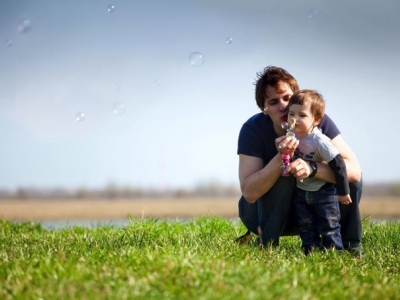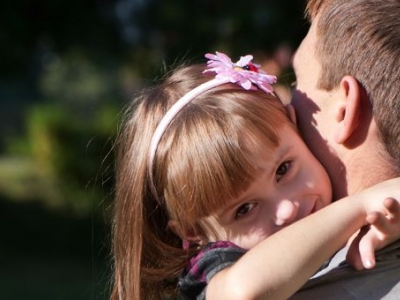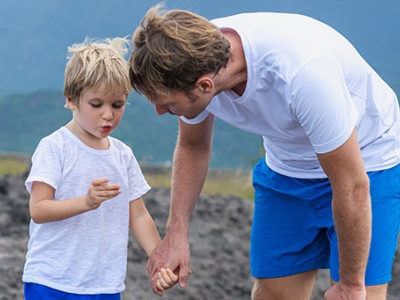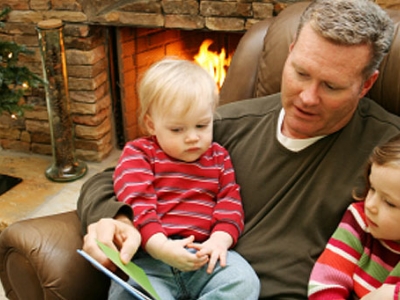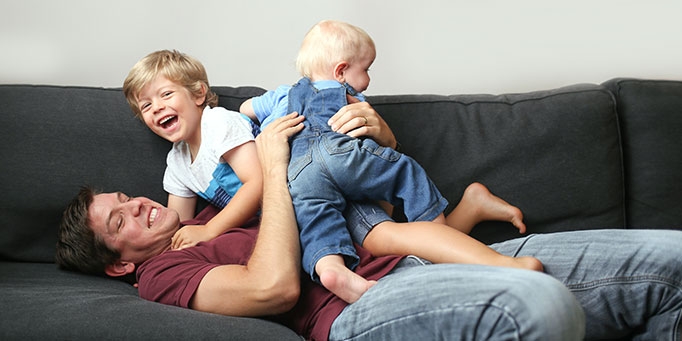
Let them wrestle!
The importance of rough-and-tumble play with dad.
Why do dads throw their babies up into the air? Why do dads chase, tickle and wrestle their kids until they are on the verge of tears?
This kind of play can be hard for mothers to understand. We watch on with rising concern; we worry that someone will get hurt, or that the kids are experiencing real fear behind their giggles. We can be tempted to put a stop to the whole thing, because it makes us feel uncomfortable.
However, rough-and-tumble play is vital. It teaches children important life skills and helps them to develop a special relationship with their dad.
Dads naturally play ‘rough’
Mothers and fathers tend to interact with their children in different ways: mothers prioritise care and nurture, while fathers prioritise play and challenge.
The Bible assumes rather than teaches this fact, but we get a glimpse of it in Paul’s comments to the church in Thessalonica:
‘But we were gentle among you, like a nursing mother taking care of her own children. So, being affectionately desirous of you, we were ready to share with you not only the gospel of God but also our own selves, because you had become very dear to us … For you know how, like a father with his children, we exhorted each one of you and encouraged you and charged you to walk in a manner worthy of God, who calls you into his own kingdom and glory.’ (1 Thessalonians 2:7–8, 11–12)
When it comes to play, fathers generally initiate games that are challenging, active and physical: ‘Fathers emphasise more competition, risk-taking, and independence while mothers stress more self-paced play, that is, mothers tend to encourage more play that is at their child’s level.’ ('Gender matters', Them Before Us)
Rough-and-tumble play is good for both boys and girls, especially around the ages of 3–7. Younger children also enjoy more gentle activities such as being bounced, lifted up or chased. If you're new to this kind of play, a good place to start is to become some kind of 'Daddy monster' and challenge your kids to chase and capture you. With older children, you could have a 'sock wrestle', where each person tries to remove the other person's socks without losing their own.
Researchers have identified the features of ‘high quality’ rough-and-tumble play:
• A safe environment (for example, on a soft surface)
• A few rules or boundaries (for example, no kicking or biting)
• Dad self-handicaps so that children can sometimes overpower him
• Mutual enjoyment
• Children have time (and possibly help) to wind down at the end.
The benefits of rough-and-tumble play
Social skills
Playing ‘rough’ with dad helps children to learn the boundaries of acceptable behaviour. As they watch and respond to dad, they learn to ‘read’ other people to know whether they are still enjoying the game. Children who engage in rough-and-tumble play with their dad tend to be more considerate of others’ emotions and better at sharing.
Emotional regulation
High energy games with dad often push children to their limits. They can feel exhilarated and excited, as well as frustrated, challenged, scared and surprised—all at once. The ‘safe space’ of a fun game with dad is the perfect place for kids to learn to express and overcome these big emotions.
Reduced risk of injury
Studies have shown that the more kids engage in rough-and-tumble play with their dad, the lower their risk of physical injury. That’s because this kind of active play helps children to learn about their bodies’ limits and capabilities and allows them to practise taking risks.
Winning and losing
Dads tend to play with their children in a more competitive way, which means that sometimes the kids win … and sometimes they lose. Learning how to cope with this kind of disappointment and failure is a vital skill for life.
A special bond
In general, fathers tend to spend less time with their children than mothers do. But their role in raising children is equally important. Rough-and-tumble play is one way that dads can build a closer bond with their children, creating special traditions and memories and helping their children to develop important life skills.
And it’s something that most mums don’t naturally tend to do.
So mums, let’s step out of the way and just let them wrestle!
References:
‘A father’s involvement in rough and tumble play’, The Fathering Project podcast.
‘Kids learn valuable life skills through rough and tumble play’, Newcastle University Newsroom
‘Gender matters’, Them Before Us.
‘Rough-and-tumble play: a guide’, Raising Children Network.
---
Harriet Connor is the Content Editor for Growing Faith and the author of Families in God's Plan: 12 Foundational Bible Studies and Big Picture Parents: Ancient Wisdom for Modern Life (Wipf and Stock, 2017). She lives on the Central Coast of NSW with her husband and four sons.

Hey! Is That How God Made Families?
God looks after us; he knows just what we need. That’s why he gave us a family to love and care for us. Families come in all shapes and sizes. But look closely! Is this how God made families?
For more articles from Growing Faith, subscribe to our monthly e-newsletter.
To hear about the latest books and resources from Youthworks Media, subscribe here.


